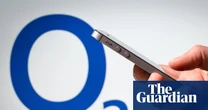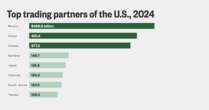In a world where innovation drives success, the most valuable asset a company can secure is exceptional people. Great talent is the common denominator across all successful companies.
This is particularly true in the investment industry, and always true for hedge funds. Each hedge fund is essentially a team of people betting that they have the smarts to understand the world better than any of their competitors. When aiming to consistently beat the markets, you need to be the best in the world at what you do. Success is developing an understanding and ultimately an edge that others haven’t cracked yet. That’s the game—zero-sum, and supercompetitive.
As the deputy chief investment officer of a leading hedge fund, I am lucky to see firsthand what it takes to have any chance of being the best. We need everyone on our team to be exceptionally bright, to relentlessly challenge any consensus around them, and to be truly obsessed about what they do—all while working in an intense culture of collaboration where everyone challenges each other and seeks to constantly improve.
Finding talent like that is extremely tough. Bridgewater has prided itself for decades on attracting the best, but doing so requires evolution in our approach, and looking beyond traditional avenues.
Outside the box—and sometimes the classroom
It’s common for elite companies to look to the most prestigious schools as their primary way of recruiting incoming investment classes. Bridgewater leverages this route, too, as such universities are often the home to many brilliant students. But the fact is, most of the world’s best talent is elsewhere. Many of the most brilliant and innovative thinkers come from diverse backgrounds and educational paths.
My own experiences have fueled my commitment to expanding our recruiting horizons. I myself am a college dropout. And before making that choice, I remember how troubled I was by the clear disparities of opportunity I saw around me, when growing up in central Illinois.
I would hear of students elsewhere having high school teachers with PhDs and receiving expensive elite standardized test tutoring. By the time I got to high school, I had become an avid participant in online communities developed to help other students, and even published an extensive SAT guide online, which helped freely spread best practices to hundreds of thousands of students across the world. Students like me.
The democratization enabled by the internet not only allows for students to access otherwise unattainable resources, but it also opens up key opportunities for companies to identify the best talent. While the possibilities here are endless, Bridgewater has already begun to source candidates through Metaculus, a web-based forecasting platform.
With Metaculus, we run prediction competitions, where participants leverage their abilities and grit to make logical, thoughtful predictions about what will happen in the future. This allows us to seamlessly leverage technology to tap into a vast pool of talent that extends far beyond conventional recruiting channels, allowing us to discover talent anywhere in the world.
This is a deeply meritocratic approach.
Last year, in our first contest, we had participation from students at over 140 schools as well as many noncampus candidates, many of whom Bridgewater had never reached with recruitment efforts before. Fifteen hundred people joined the contest, including 700 undergraduate students from across the U.S. While Yale came in 134th place and Harvard finished 138th, Northwestern University topped the standings.
But the overall winner was an undergraduate from Grinnell College, a private liberal arts college in Iowa. In addition to the Grinnell student, we interviewed dozens of candidates and ultimately made three internship offers from schools we have not historically recruited from. I personally interviewed those three candidates and can confidently say they were among the most exciting, promising candidates I’ve ever met.
This competition is only one example of the many ways that new recruitment methods through innovative technologies will level the playing field and highlight those who might otherwise be overlooked.
To be best positioned moving forward, leading global companies must consider those who can raise the best ideas, regardless of the background that informs them.










No comments